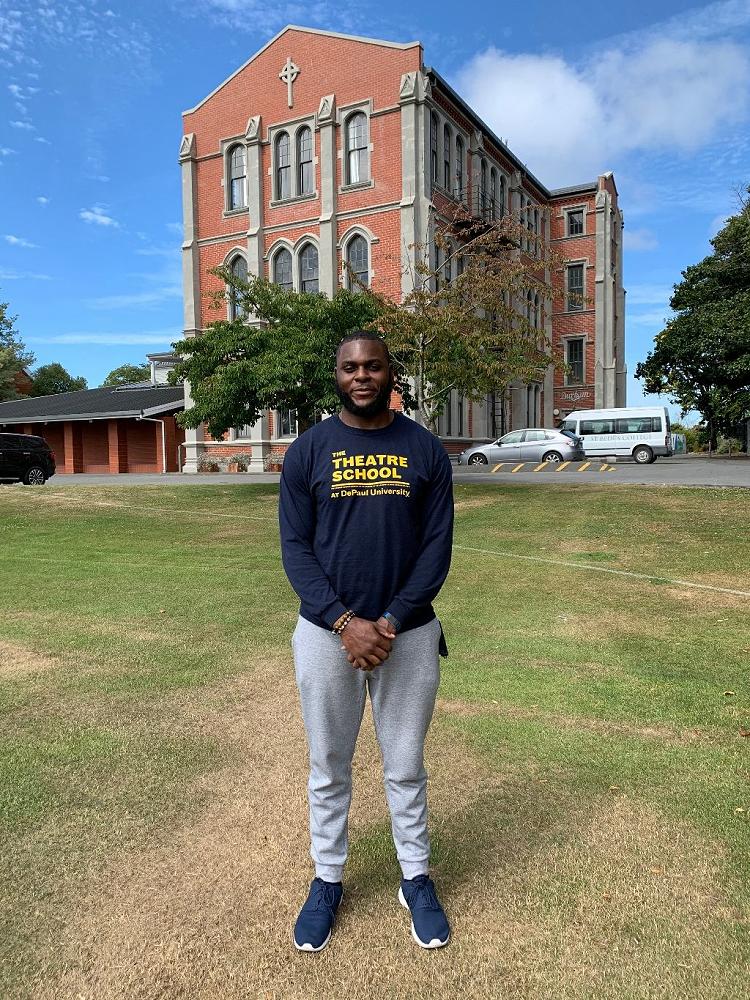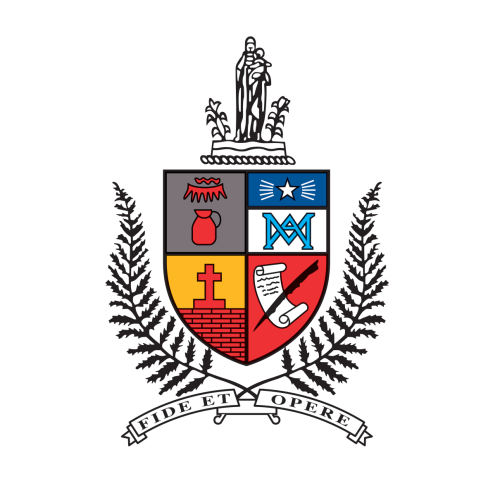
Some thoughts from Boarding House Tutor Judah Word
Judah Word shares his thoughts from lockdown
Judah Word was to spend 2020 as a Boarding House Tutor, IRP Coaching Intern and English teacher until COVID-19 changed everything. The 2020 IRP has been cancelled, so Judah is now helping with ESOL classes, working as a Boarding House Tutor and will assist Dave Litten coaching the U16B rugby team. He recently wrote an article for his ICEF rugby team back in Los Angeles which we have edited slightly to use in our newsletter. If you see Judah around campus please connect with him and further prove that New Zealanders, and in particular the Bedean family, are friendly, welcoming people.
Over to Judah...
I won’t be alone in thinking that so far 2020 has been dominated by instability, shock and pain, but the lockdown has also led to a good amount of quiet introspection and productive reflection. When I came to Aotearoa New Zealand at the start of this year, I had no idea how developments would overtake my plans and, as a result, even affect my views of some important things in life. The move itself was smooth and the adjustment to my new routine came with much positive stimulus.
So far, in the context of my heavily “St. Bede’s College-oriented” experience at least, I have found the people of New Zealand to be friendlier and more hospitable than those of any other nationality I have interacted with, definitely more than the people I crossed paths with in my home town of Los Angeles, and the United States in general. The U.S. is a nation that I both love and abhor, and all for the same reason – its national character. The melting-pot culture of my homeland creates an incredibly diverse society and openly encourages individuality, but at the same time, at its worst, U.S. society is a veritable cesspool of disconnected people with myopic views on life. This in itself isn’t inherently negative, but I think it stunts healthy interdependence among America’s citizens and as a result, ideologically we tend to lead our lives “in silos”.
I’ve only been here in New Zealand for four months, living on-site in a pleasant, Catholic boys’ school, and so after just a third of the year I may be getting a little ahead of myself to be making the observation that while New Zealand is a very comfortable place to be, it is not a perfect society. However, one thing I can confidently state is that it lacks the horribly polarized rhetoric that we hear on a daily basis back home. Aotearoa seems to thrive off its society’s multicultural interconnection, operating as one team with everyone knowing that they have a part to play in its success. Citizens at every level of New Zealand society, especially those in positions of responsibility in the government, seem to genuinely strive to tackle injustice with the intent of making the country better. They start by publicly behaving in a respectful and positive manner. In their public appearances, Prime Minister Jacinda Ardern and her government’s officials regularly demonstrate admirable resolve and grace. Be it concerning the current challenges of the pandemic, difficult policy matters, or even in response to fierce polemic, they encourage Kiwis to believe that they too can and should do the right thing. I have found it refreshing and inspiring to see those in positions of power in New Zealand boldly urge Kiwis to step forward and contribute on important matters such as social justice.
This kind of leadership seems to be a thing of the past in the United States. The embarrassing behavior of our so-called “leaders” during this pandemic makes me wonder why is my country like this? Why do we accept the blatant ignorance of our “leaders” when in no way do these people represent the myriad of good things that the United States has to offer? Why is it that in New Zealand I don’t have to worry about being shot and killed while out jogging, but in the United States I do? Why is it that the New Zealand government recognizes stains on its history regarding matters of race, but the United States government refuses to even entertain the notion that there is an issue? I’ve asked myself these things numerous times during this period of isolation and have come to the conclusion that the reason can be traced back to nationalism based on misconstrued pride. Among all of the errors the United States has made in its history, its unwillingness to openly recognize and then work to resolve the mistakes made in its race relations is truly regrettable, particularly given the regression we have seen in this area in the last half-century. It baffles me how the catch-cry of “Make-America-Great-Again” is used in a way that excludes blacks and people of color, the very people whose disenfranchisement, and forced labor on the plantations, and railroads created modern America. The right-wing diatribe openly leaves out these martyrs of our country who contributed so much in the last four hundred years.
From what I have read so far, New Zealand history has its own fair share of racial injustice and of there will be disagreements on policy options between the opposition parties and the government. But during this pandemic Kiwis seem to understand that achieving a shared goal requires sacrifice, teamwork and inclusiveness. Cooperation for the greater good seems to come naturally here. From the comfort of my room in the boarding house at St. Bede’s College I will continue to follow developments back in the United States. In these troubled times it is fascinating to compare the leadership style of the two countries’ leaders. These observations are not an uplifting experience as an American, but hopefully after November we will have someone more competent and intelligent than we currently have in the White House. Be that as it may, I hope people back home will reflect and acquire mental peace during the quarantine. Surely better days are ahead....
